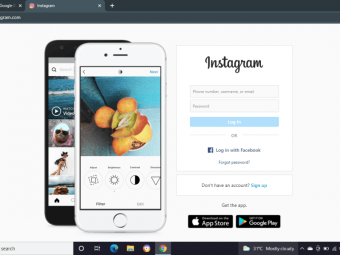The initial contact with the potential clients is a delicate art for the sales representatives. You will hardly ever get a second chance to make the first impression; thus, do everything to ensure your outreach registers with the prospects.
There are numerous ways to potential outreach clients. And selecting the right one makes a real difference in the response rate. Now, it’s up to you whether you choose to send a formally written email or make a professional phone call. Just make sure you use the method that turns out to be more responsive.
Sales Email vs. Cold Call
Sales emails and cold calls can both be effective in their way. You need to know the right way to communicate. The slight difference between the two is about convenience versus directness. Sales emails tend to be more accessible and consume less time than cold calls, but calls are often more efficient in getting direct responses from the clients.
Why choose among calls and emails? You can market through both calls and emails and potential target clients effectively. Both calls and emails can be used with sales campaigns.
Differences Between the Two – Sales Email and Cold Calls
Let’s break down a few differences between a cold call and a sales email to make it a little clearer. Have a look.
Cold Calls Are More Personal
Cold calls are more personal than sales emails. It allows you to respond immediately and convince the clients by saying “no.” They are also more dynamic than sales emails because you can adjust your strategy to fit the client’s requirements as your conversation advances.

Calling the Clients Out of the Blue Can Be Offensive
Yes, cold calling can be beneficial in most cases, but it has a downside as well. By nature, cold calls can be a bit intrusive. People are not interested in receiving calls all the time. And calling a prospect consistently can be frustrating at times.
Moreover, it can also be annoying for you if the prospect isn’t receiving your call or if it isn’t going smoothly. Calls can also be more expensive and less effective than professional sales emails. If you are consistently flooding clients with obtrusive calls, you might ruin your company’s reputation.

Emails Can Be Easier to Scale
Cold emails have a distinctive approach to prospecting. They are a lot cheaper and more effective, which makes them more scalable. You can also attach more visually informative and appealing content to a cold email. You can also add figures and concepts that are often harder to convey over the phone. This makes emails easier to scale. You can also attach the details of products and services in the form of images which can attract the clients easily. Prospects tend to respond quicker to the emails that have attractive images and videos.

Cold Emails is Convenient to Track
A cold email can be less intrusive than a call. Clients are a little politer in response to one – even if they are saying “no.” Even though it might not be much, it can help in morale as well. Emails are often tracked, automated, and forwarded – which makes them convenient to distribute.
Emails Can Be Convenient for Prospects to Ignore
The main issue with cold emails is being ignored. Clients can be immersed with thousands of cold emails every day. The competition is relatively abundant. In several cases, cold emails can be blocked, go unopened, and directly deleted. And if one is persuasive enough to make a response, there’s no telling when it will come.
Whether you interact with a prospect through a phone or email, if you’re controlling cold outreach, all communication requires to be managed with care. It would help if you make sure that new contacts are formed precisely. Suppose they are a practicable candidate for your offer and attentive to any borders they establish.

Bottom-Line
From this debate, we can conclude that both emails and calls can be effective, but you need to ensure which option you choose. If you want to decide between sales email vs. cold call, this article will help you choose the right one. For more informative articles, stay connected.
 Install Studocu Chrome Extension
Install Studocu Chrome Extension









